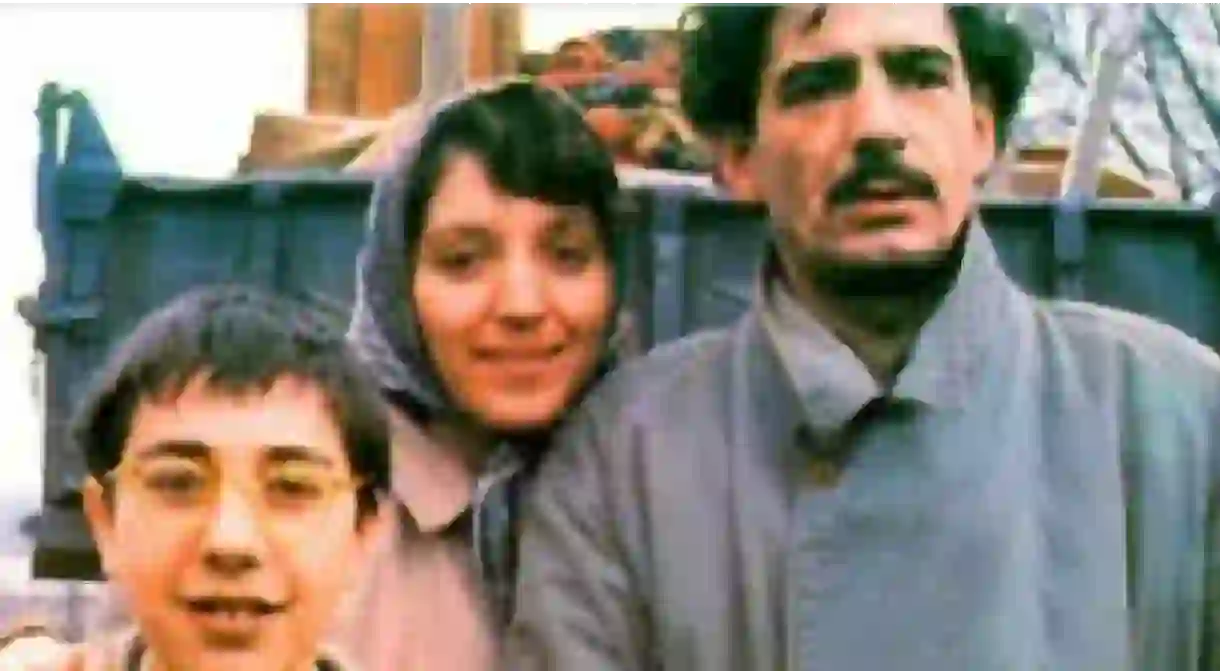Emir Kusturica, Embattled Auteur Of The Former Yugoslavia

The director Emir Kusturica has twice won the Palme d’Or for portraying the modern history of Serbia. Yet at the height of his success, Kusturica nearly turned his back on the artistic medium he loved.
Kusturica has received international recognition for his contributions to contemporary cinema. Integrating poignant humour with stirring social critique of the political turbulence surrounding his homeland, the films of Emir Kusturica stimulate and provoke the minds of their viewers, solidifying the cultural role of film as not just entertainment, but as an art form. A Cannes festival favourite, Kusturica won the Palme d’Or in 1985 for When Father Was Away On Business and in 1995 for Underground.
Born in Sarajevo in 1954, which was at the time part of Yugoslavia, Kusturica’s introduction to film came with a small acting role for director Hajrudin ‘Šiba’ Krvavac in Walter Defends Sarajevo. Kusturica’s experience on Krvavac’s film set ignited an interest in the visual arts and led him to study film production at the Academy of Performing Arts in Prague.
In 1981, Kusturica’s Do You Remember Dolly Bell? marked the director’s professional debut into feature film where it won praise from critics at the Venice Film Festival. Do You Remember Dolly Bell? tells the coming-of-age story of Dino, a young teen living in a 1960s neighbourhood outside of Sarajevo. After being involved with local gangsters and low-level thieves, Dino is forced to assist in hiding a prostitute with whom he falls hopelessly in love.
Do You Remember Dolly Bell? was followed in 1985 by When Father Was Away On Business, which won the coveted Palme d’Or, in addition to an Oscar nomination for Best Foreign Film. Set against the backdrop of Yugoslavia’s early Informbiro period (1948-55), during which Yugoslavian Communism under Josip Tito split from the official Communist party line led by Joseph Stalin and the Soviet Union.
When Father Was Away on Business presents the story of young Malik as he witnesses the unjust imprisonment of his father who makes a casual comment about a particular cartoon featured in a local newspaper. The film illuminates Malik’s fear and confusion as he seeks to understand his mother’s actions to protect him and his family. Kusturica’s character-driven storytelling and direction in When Father Was Away on Business solidified him as a rising figure in contemporary cinema.
Kusturica’s most ambitious project to date has also been his most controversial. Underground is a sweeping tragicomic epic that sweeps through the 20th century history of Yugoslavia. Divided into three parts, ‘War’, ‘Cold War’, and ‘War’, the film won the 1995 Palme d’Or at Cannes and has been called ‘an unruly, audacious, unashamedly excessive requiem for a dying Yugoslavia’. The film follows a profiteering arms dealer who fools his friends hiding underground into believing that World War II was still continuing in order to keep them producing weapons to sell.
Despite the praise Kusturica received from the international film community for Underground, he has faced vitriolic reactions from critics including Slovenian intellectual Slavoj Zizek and French philosopher Bernard-Henri Lévy, who accuse him of false portrayals and nationalistic bias. The harshest criticism levelled at Kusturica accuses him for his opposition to the dissolution of Yugoslavia and for his tacit abandonment of Sarajevo during the Yugoslavian wars through his refusal to openly take sides. According to Kusturica: ‘I just couldn’t stand the attacks anymore – like I was one of the biggest criminals against humanity’ Thus in 1996, Kusturica shocked the film establishment by announcing his retirement from filmmaking.
In 1999, however, Kusturica returned to his beloved medium with more light-hearted and conscientiously apolitical fare. Black Cat, White Cat (1999) is a magical realist romp that centres on wandering Gypsy musicians who are played by nonprofessional gypsy actors. Another one of his films, Super 8 Stories (2001), is a narrative mosaic that follows the band No Smoking Orchestra, a group of musicians that includes Kusturica himself. Kusturica’s 2007 documentary, Maradona, is a portrait of Argentina soccer star, Diego Maradona. Since his near retirement, Kusturica has maintained his passion for cinema and his films continue to win awards and captivate his audiences.













